SELF-REGULATION, EMOTION EXPRESSION & CLASSROOM ...
SELF-REGULATION, EMOTION EXPRESSION & CLASSROOM ...
SELF-REGULATION, EMOTION EXPRESSION & CLASSROOM ...
Create successful ePaper yourself
Turn your PDF publications into a flip-book with our unique Google optimized e-Paper software.
stimulus (e.g. Snack Delay, Gift Wrap tasks; taken from Kochanska, Murray, & Harlan,<br />
2000; Rothbart & Bates, 2006).<br />
In addition, hot executive control processes have been linked to the successful<br />
development of early math and literacy skills independent of general intelligence and<br />
specific knowledge of a problem or its solutions (Blair & Razza, 2007; Fabes, Martin,<br />
Hanish, Anders, & Madden-Derdich, 2003; Raver & Zigler, 1997; Rimm-Kaufman et al.,<br />
2000). Further,investigations by Mischel, Shoda and colleagues have found that this<br />
predictive relation with verbal and intellectual ability persists over time, far into<br />
children’s later academic career (see Rodriguez, Mischel & Shoda, 1989; Shoda, Mischel,<br />
& Peake, 1990). These findings have been confirmed by educators who suggest that the<br />
ability to regulate in the midst of emotionally arousing stimuli is a particularly important<br />
ability (Shonkoff & Phillips, 2000). In fact, difficulties with hot executive control –<br />
disruptive or externalizing problem behavior, for example – in the preschool years has a<br />
significant negative impact on a child’s learning in elementary classrooms (Raver &<br />
Zigler, 1997; Rimm-Kaufman et al., 2000; Shonkoff & Phillips, 2000).<br />
Integrating facets of self-regulation. It is clear that self-regulation is not a single,<br />
static domain but is comprised of controlling, directing, and planning attentional,<br />
emotional, and behavioral regulation; and this interrelated set of abilities has been<br />
found to contribute to competent functioning over the entire life span (Bronson, 2000;<br />
Posner & Rothbart, 2000). It has been determined that stress plays a crucial role in<br />
determining whether hot or cool system of executive control are more prominently<br />
11



![[Sample B: Approval/Signature Sheet] - George Mason University](https://img.yumpu.com/21978828/1/190x245/sample-b-approval-signature-sheet-george-mason-university.jpg?quality=85)
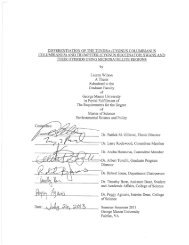
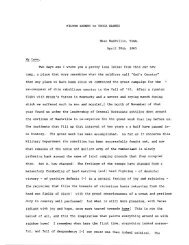
![[Sample B: Approval/Signature Sheet] - George Mason University](https://img.yumpu.com/18694905/1/190x245/sample-b-approval-signature-sheet-george-mason-university.jpg?quality=85)
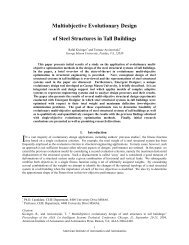
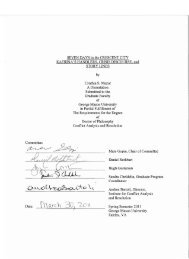
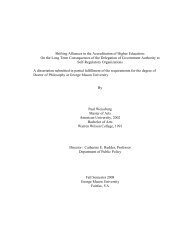
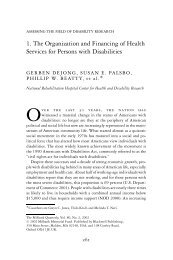
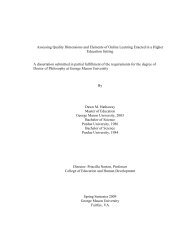
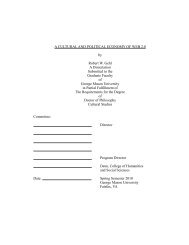
![[Sample B: Approval/Signature Sheet] - George Mason University](https://img.yumpu.com/18694552/1/189x260/sample-b-approval-signature-sheet-george-mason-university.jpg?quality=85)
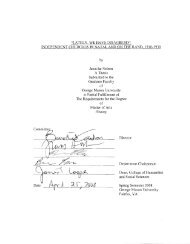
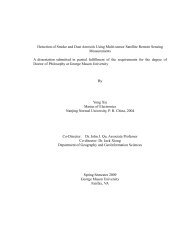
![[Sample B: Approval/Signature Sheet] - George Mason University](https://img.yumpu.com/18694474/1/190x245/sample-b-approval-signature-sheet-george-mason-university.jpg?quality=85)